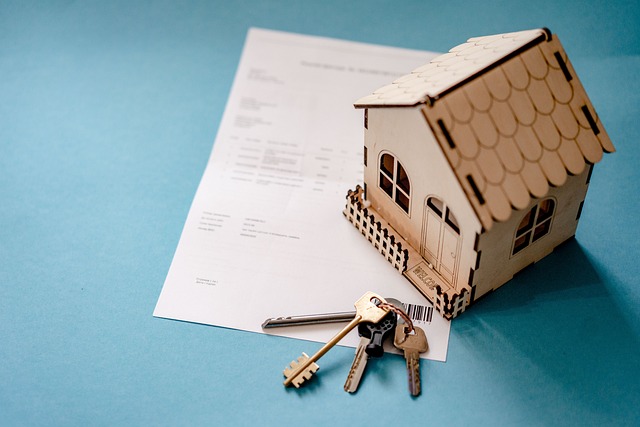Property insurance is a critical safety measure for businesses, protecting against physical asset losses from fires, storms, theft, and other unforeseen events. It covers repair/replacement costs, enabling swift business continuity. This coverage includes business interruption, Extra Expenses, and can account for unique risks in commercial properties like data breaches or customer injuries. Understanding policy terms like replacement cost vs. actual cash value is key. Effective claims processes, with detailed documentation, ensure smooth recovery. Staying informed about evolving property insurance trends, such as cyber liability and sustainable building practices, allows business owners to secure comprehensive protection for their assets.
“As a business owner, protecting your commercial property and its value is paramount. This is where comprehensive property insurance steps in as a crucial safety net. In this article, we unravel the complexities of property insurance, guiding you through its essential coverage options. From unforeseen property damage due to fires or storms to the financial impact of business interruption, we explore real-world scenarios. Learn about valuation methods, understanding extra expense coverage, and navigating claims processes. Equip yourself with knowledge to make informed decisions for your business’s future.”
Understanding Property Insurance: What It Covers and Why It Matters

Property insurance is a crucial safety net for business owners, protecting their physical assets from unforeseen perils. This type of coverage encompasses a wide range of risks, including damage or loss due to fire, storms, theft, vandalism, and other hazards. By having property insurance, business owners can rest assured that their investments in buildings, equipment, inventory, and other tangible assets are safeguarded against financial ruin caused by unforeseen events.
Beyond asset protection, property insurance plays a vital role in ensuring business continuity. In the event of a covered loss, the insurance policy helps cover the costs of repairs or rebuilding, enabling owners to quickly restore their operations. This is particularly important for small businesses where a single event could disrupt daily functions and impact profitability. Therefore, securing adequate property insurance is not just about mitigating financial risk; it’s also about ensuring the long-term viability and resilience of a business.
Types of Property Damage: Fire, Storms, and Beyond

Business owners often face a myriad of risks that can lead to property damage, emphasizing the need for comprehensive property insurance. Understanding the types of coverage is vital in protecting their investments. Fire and storms top the list of common hazards but are by no means the only concerns. Floods, for instance, can wreak havoc on businesses, especially those located in low-lying areas or near rivers. Earthquakes pose a significant risk to structures, leading to structural damage and the displacement of operations.
Additionally, man-made disasters like riots or civil unrest can result in property destruction. Property insurance policies cater to these diverse scenarios, offering financial protection against repair or replacement costs. Business owners should carefully review their policy terms to ensure adequate coverage for such unforeseen events, safeguarding their assets and ensuring continuity in their operations.
Business Interruption: How Insurance Can Help You Bounce Back

Business interruption is a common challenge that many businesses face, from small startups to large corporations. It occurs when operations are halted due to unforeseen events such as natural disasters, equipment failure, or civil unrest. This can lead to significant financial strain and even long-term closure for affected businesses. However, having the right property insurance can make all the difference in your recovery process.
Property insurance provides coverage for physical assets like buildings, inventory, and equipment. But it also offers business interruption protection, which helps offset losses incurred during downtime. This includes expenses like continued fixed costs, temporary relocation, and extended warranty services to keep operations running while you recover from the disruption. By ensuring adequate property insurance with comprehensive business interruption coverage, owners can bounce back from unforeseen events more swiftly and with greater financial stability.
Valuation and Replacement Cost: Ensuring Accurate Coverage

Accurately valuing your business property is a critical aspect of securing adequate property insurance coverage. Property insurance policies are designed to cover the cost of repairing or replacing your assets in the event of damage, theft, or destruction. To ensure you have the right amount of coverage, insurers use two primary valuation methods: replacement cost and actual cash value (ACV).
Replacement cost refers to the expense of rebuilding or replacing damaged property with materials of similar quality and type. This method ensures that your policy provides enough funds to restore your business to its pre-loss condition. On the other hand, ACV considers the current market value of the property, depreciating it over time. It’s essential for business owners to understand these concepts to make informed decisions when choosing their property insurance coverage, ensuring they’re protected against potential financial losses.
Extra Expenses and Business Continuity: A Safety Net for Overhead Costs

For business owners, the potential impact of a property loss or damage can be significant, disrupting daily operations and causing financial strain. This is where Property Insurance steps in as a crucial safety net, offering protection against unforeseen events that could cripple a business’s stability. Beyond simply covering the cost of repairing or replacing physical assets, Property Insurance includes provisions for Extra Expenses—an essential aspect for maintaining business continuity.
These extra expenses account for ongoing costs like rent, employee salaries, and marketing expenses incurred during the recovery period. By ensuring these overhead costs are covered, Property Insurance enables business owners to focus on rebuilding and resuming operations promptly. This support is vital in mitigating downtime and preserving the financial health of a company, ensuring it can bounce back from adversity with minimal disruption to its daily hustle and bustle.
Special Considerations for Commercial Properties and Businesses

Commercial properties and businesses face unique challenges when it comes to property coverage. These structures often house valuable equipment, inventory, and data, requiring specialized insurance policies that cater to their specific needs. Unlike residential properties, commercial spaces may have complex layouts with multiple areas, such as retail stores, offices, or industrial warehouses, each presenting distinct risks and potential hazards.
Business owners must consider factors like liability for customer injuries, protection of business assets during construction or renovation, and the security of sensitive information. Special considerations also arise from the nature of the business operations, including risks associated with chemicals, machinery, or data breaches. Property insurance for commercial spaces should offer comprehensive coverage to address these concerns, ensuring businesses can continue operations with peace of mind.
Claims Process and What to Expect: Navigating Your Property Claim

When a business owner faces a property loss, understanding the claims process is crucial. The first step involves contacting your insurance provider as soon as possible to report the damage or loss. Property insurance companies typically have a dedicated team to handle such cases, and they will guide you through the initial steps. You can expect them to request details about the incident, including when it occurred, the extent of the damage, and any relevant information that might affect your coverage.
During this process, be prepared to provide comprehensive documentation. This may include taking photos or videos of the affected area, keeping records of repair estimates, and gathering information from any witnesses. Your insurance company will assess the claim and may send an adjuster to inspect the property. They will then provide a decision on whether your claim is approved, denied, or requires additional information. Be patient during this navigation as each insurer has its own procedures, and delays could be due to complex circumstances rather than a lack of effort from your end.
Property Insurance Trends and Tips for Smart Business Owners

In today’s dynamic business landscape, understanding and securing adequate property insurance has become more crucial than ever. Property Insurance trends are evolving to meet the increasing complexity and risks associated with commercial spaces. Smart business owners are leveraging these trends to their advantage, ensuring comprehensive coverage for their assets. For instance, there’s a growing emphasis on cyber liability insurance as digital threats continue to emerge, reflecting the digital transformation of many businesses.
Additionally, eco-friendly construction materials and sustainable building practices are gaining traction, influencing property insurance policies. Insurers are now offering tailored plans that consider environmental factors, recognizing their impact on structural integrity and potential risks. Business owners should stay informed about these trends, regularly review their coverage, and adjust policies as needed to protect against emerging perils. Tips include keeping detailed records of assets, understanding policy exclusions, and exploring high-value item endorsements for irreplaceable possessions.
